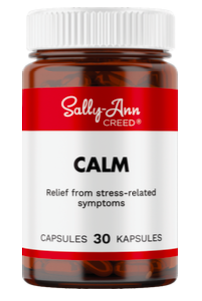Getting older is an inevitable and natural part of life, but it can come with some challenges, including joints that are a bit stiffer and muscles that don’t recover as quickly as they used to. Fortunately, there’s plenty you can do today to prepare your body (and mind) for tomorrow. Here are three ways to lay the foundation for energy, vitality and good health in later life.
-
Move your body
One of the best things you can do for your older self is to stay active. While the immediate benefits of regular exercise are well-established, here are a few ways physical activity can help you prepare for later life:
- Strength and resistance training can help stave off age-related muscle loss.
- Weight-bearing exercises like walking and hiking can help you build and maintain strong bones.
- Cardio workouts can help lower blood pressure and improve heart health.
- Mobility exercises can help you develop and maintain a good range of motion as you get older.
Supplement support: Glutamine and collagen are a dynamic duo to complement your exercise routine. Glutamine can improve recovery time after exercise and may even aid fat burning. And pure hydrolysed collagen is something of an all-round wonder supplement, supporting healthy connective tissue, helping to repair joints, tendons and ligaments, and promoting gut health, among many other benefits.
-
Stimulate your brain
Cognitive skills and abilities tend to decline with age, so it’s worth investing in activities that will help keep your brain fit and healthy. While eating a nutrient-rich diet and getting enough sleep and exercise are excellent healthy-brain habits, here are a few additional ways to keep your mind sharp as you get older.
- Play a brain game – word or number puzzles like crosswords or Sudoku are a great choice.
- Learn something new – whether you’re interested in painting, pottery or photography, there are plenty of courses on offer.
- Set yourself a reading goal – for example, aim to read a new book every month. Or better yet, join an online book club to reap the social benefits too.
- Challenge yourself – take up a musical instrument or start learning a new language.
Supplement support: The B vitamins play an important role in the brain, from protecting and repairing cells to helping brain neurons to ‘fire’ correctly. Riboflavin (B2), for instance, is a powerful antioxidant which fights free radical damage in the body, especially in the brain. And folate (B9) is vital for a healthy brain and a good memory. So, if you’re looking to boost your brain health, consider adding a B complex supplement to your routine – the B vitamins work best together.
-
Learn to manage stress
Stress seems to be part and parcel of modern life. But when it becomes chronic, it can take a real toll on your body – affecting everything from your mood and sleep patterns to your immune system and digestion. And a number of studies have shown that stress may even make your cells age faster. So if you find that you struggle to manage your stress levels, it’s worth adopting some stress-busting strategies that you can use now and in the future.
- Focus on the positives in your life – gratitude can be a powerful stress-reduction tool.
- Get plenty of sleep – sleep deprivation can affect your mood and memory and exacerbate your stress levels.
- Do relaxation exercises – practices like yoga, meditation and deep breathing are particularly useful in calming your mind and body.
- Connect with friends – these relationships are essential for emotional and mental health.
Supplement support

Calm is a natural Sally-Ann Creed supplement which helps to reduce stress and anxiety and improve sleep quality. The active ingredient in Calm is Lactium®, a unique milk extract that contains a natural bioactive protein with relaxing properties. This soothing product also helps to promote cognitive health and healthy cortisol levels.

